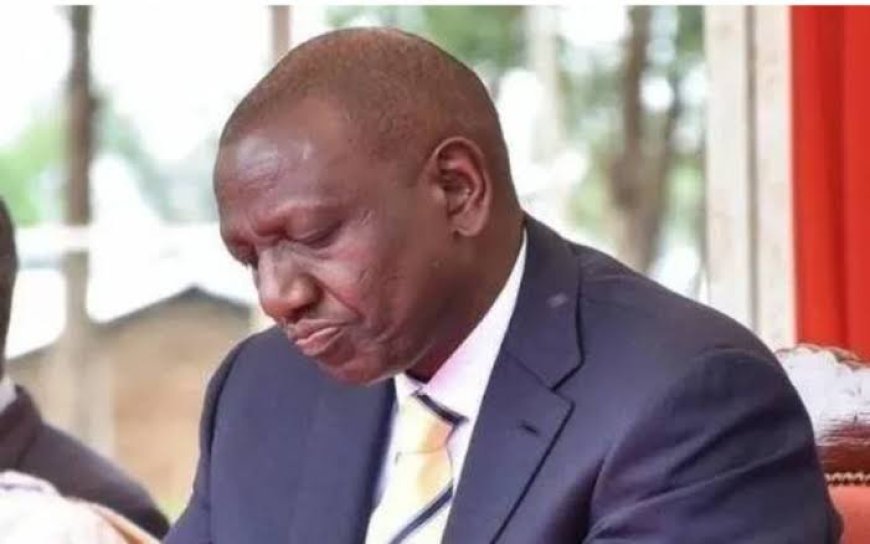Ruto, President who lost ears to Kenyans

By Robert Mutasi
Listening has always been one of the most difficult tasks in human life.
The difficulty of truly listening and understanding others is quite universal, yet it is important in fostering healthy communication and effective leadership.
Despite this inherent challenge, we must make the effort to listen to one another, especially when those around us are conveying messages filled with complex emotions and varying perspectives.
Ignoring the voices of others is not an option; instead, we must listen, reflect, and act accordingly.
Unfortunately, it would appear that President William Ruto has fallen into the trap of not listening to both his peers and the citizens of Kenya, whose cries for help grow louder with each passing day.
Since his ascension to office, President Ruto has faced repeated criticism for failing to meaningfully engage with the people. People from all levels of life have complained and cried to him to help them solve their problems and to implement his promises he had during the campaigns.
Surprisingly, the President seems to have turned a deaf ear toward the implementation of such needs of the people, using a top-bottom approach that is very cold in addressing their struggles.
The voices of citizens have been drowned out by political rhetoric, while the challenges they face-poverty, increased costs of living, and inequality-remain largely unaddressed.
In his efforts at governance, President Ruto has continued this trend of passing bills into law without sufficient involvement of key stakeholders and the general public in the decision-making processes.
Through its tyranny of numbers in the National Assembly and the Senate, the government has forced legislation down Kenyans' throats with total disregard for its consequences to the common mwananchi.
The same bills often come across as the solutions that the country is yearning for but often result in burdening ordinary citizens and especially low- and middle-income groups.
Meanwhile, the benefits of these laws seem to be skewed to the political elite and well-connected business interests, and the common citizen seems to gain very little.
My concern is not with the bills per se, but with the process by which they are being passed.
There needs to be thorough public consultation wherein every county and community has had an opportunity to contribute its views.
Kenyans should be educated on the rationale behind the bills and how they will affect their lives.
It is only through this level of transparency and engagement that laws will be passed with broad public understanding and support.
Without such dialogue, opposition to these measures will continue to grow, undermining the government's legitimacy and eroding public trust.
In addition, anyone who dares to question or speak up against the current government-either opposition politicians, human rights activists, or mere concerned citizens-often receives threats or intimidation, or worse.
Voices of dissent are muted, and some have been victims of harassment, abductions, or even acts of violence because of their criticism against the administration.
This trend is worrying and has created a climate of fear and anxiety, especially among human rights advocates who are concerned that civil liberties in the country are being eroded.
This situation should remind us of the values enshrined in Kenya's 2010 Constitution, which guarantees every citizen the right to freedom of expression.
As a democracy, Kenya is supposed to be a country of the people, not one where power rests in the hands of a few.
But as things have gone thus far under the present administration, the scales of power have dramatically tipped in favor of the President, leaving little room for public input or criticism.
To President William Ruto, I say this: it is not too late to change course. You will have an opportunity to listen to the people, to hear their concerns, and to make decisions reflecting their needs.
If you take the time to engage Kenyans-if you truly listen to their cries-they will undoubtedly respond with gratitude and support.
But if you continue to ignore them, the strength of the oppressed, when pushed to the limit, will eventually rise up. And that is a force no leader can afford to ignore.
What's Your Reaction?

































































































































































































































































































